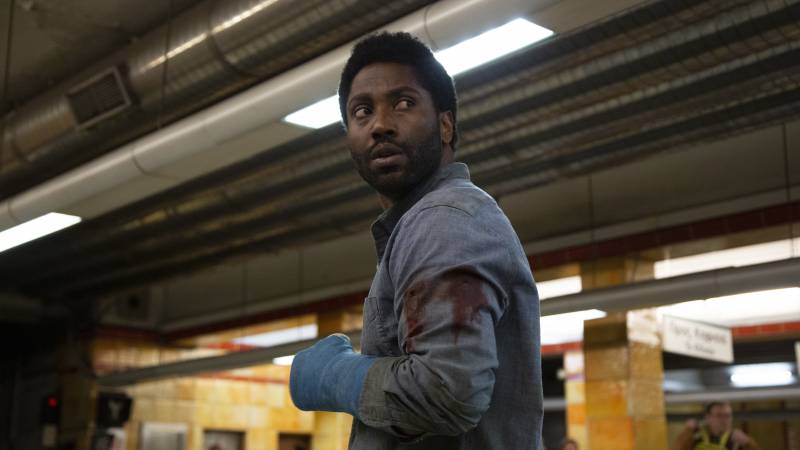Regrettably, Beckett does run into the same problem as a lot of films with fun beginnings shrouded in mystery: It has to eventually answer the question of what the heck is going on. What they’re going for here is (as critic Walter Chaw noted when we spoke about the film this week for Pop Culture Happy Hour) is the feeling of a larger conspiracy clamping down on Beckett, like you’d find in a 1970s paranoid thriller. But here, the more the film reveals about those menacing forces, the more it gets bogged down in a lot of only halfway considered material about Greek politics and American diplomacy. The final action set piece is fully ridiculous and poorly paced, particularly in contrast to the fairly straightforward chases of what happens earlier on, and by the end, the idea of Beckett as an everyman has been discarded in favor of the idea of Beckett as a superhero who manages some highly, highly unlikely feats of physics that the Beckett of a day or so earlier would never have even attempted.
The whole thing feels strangely conceived, and one hint about why might come from the press materials in which Filomarino says that what inspired this movie was other movies—other “manhunt” type films, only he wanted to try one where the protagonist was more of an ordinary person. It’s not unusual to be inspired by other kinds of storytelling, obviously—that’s the heart and soul of genre, and had they resisted the urge to make Beckett quite so bulletproof and quite so acrobatic, it might have paid off better.
But Beckett feels like perhaps the central story is underbaked because it originated not with an idea about a person, but with an idea about film, and then the task of building the story itself wasn’t quite finished with the polish it needed. That might explain, too, the oddly inert supporting characters: Vicky Krieps shows up in an underdeveloped role as a local activist, for instance, and it’s hard not to wish she had a lot more to do.
This kind of movie makes me think, I admit, of The Great British Baking Show. Sometimes, someone will make, say, a lemon cake. The the judges eat it and they announce, basically, “It’s fine. I don’t know that it’s great, or that it’s very exciting, but it’s fine.” This is not quite a ringing endorsement in the middle of a competition, but in fairness, what the person has made is still a lemon cake. And if you were in the mood for a lemon cake, then the fact that it’s not the best lemon cake you’ve ever had may be something you would not focus on, were it sitting in front of you at home. “I believe I would eat that lemon cake” is a thought you may well find yourself having.
Beckett is a bit of a lemon cake.
On the plus side, it benefits from beautiful scenery as Beckett runs around Greece, up city streets and over mountains. It benefits from Washington having quite a natural regular-guy presence, in which he often seems overwhelmed, especially at the beginning. And it benefits from the audacious pile-up of challenges with which Beckett is faced.

9(MDAxOTAwOTE4MDEyMTkxMDAzNjczZDljZA004))

